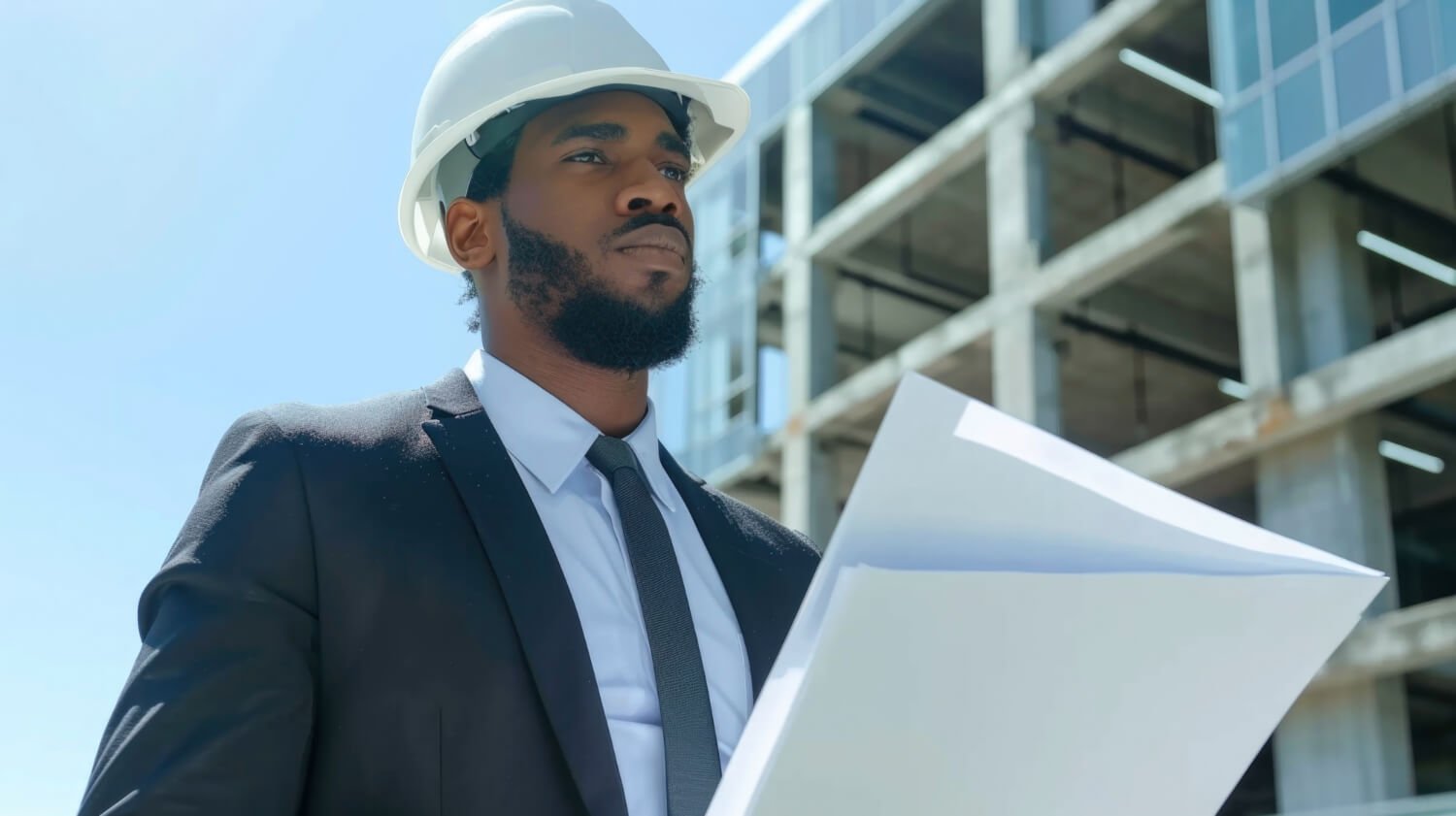There is a common misconception among first-time developers and investors in Nigeria: they believe a Construction Manager’s job is simply to stand on site and yell at workers to move faster.
If that is all your manager is doing, you are overpaying for a supervisor.
In the Nigerian context, a Construction Manager (CM) is not just a site captain. They are a Risk Manager, a Financial Controller, and a Diplomat wrapped in one. Their job is to stand between your capital and the chaotic reality of construction, protecting you from theft, regulatory bottlenecks, and quality failures.
If your CM fails in these responsibilities, you don’t just lose time. You lose money to “ghost materials” that disappear at night, surprise variation orders caused by inflation, and the sudden sealing of your site by government agencies.
At Dutum Group, we have refined the role of the Construction Manager over 30 years of delivering complex infrastructure. Here are the 6 critical responsibilities you should expect from a professional CM to protect your investment.
1. Cost Management and Value Engineering
A basic manager records costs as they happen. A Construction Manager actively looks for ways to reduce them without compromising the building’s integrity. This is Value Engineering, proposing alternative materials or methods that achieve the same result for less money.
For example, instead of accepting a sudden price hike on a specific brand of tiles, a proactive CM will source a comparable alternative with the same durability rating but a stable price.
Furthermore, we fight the “inflation tax.” In Nigeria, material prices can jump 15% in a month. A key responsibility of CMs is to forecast these spikes and recommend bulk purchases at the start of the project. Buying reinforcement bars and cement early locks in the price, saving you from “Variation Orders” halfway through the build.
2. Procurement and Supply Chain Integrity
Construction materials are currency. In Nigeria, the “invisible costs” of theft and wastage can eat up to 20% of a project’s budget if left unchecked.
Clients often say, “I bought 500 bags of cement, but the block moulder says we are out”. It is the Construction Manager’s responsibility to prevent this via Material Reconciliation. The CM needs to ensure that 1,000 blocks delivered equals 1,000 blocks installed.
Beyond theft, there is the risk of fake materials. The market is flooded with substandard iron rods and “re-bagged” cement. A CM verifies the source of every structural component directly from the manufacturer, protecting you from the liability of a building collapse.
3. Regulatory Compliance and Community Relations
In many parts of Nigeria, especially Lagos, construction is as much about politics as it is about engineering. Work stoppages caused by “Omo Onile” (land grabbers) or sudden visits from the Lagos State Building Control Agency (LASBCA) are common realities.
Foreign or out-of-state investors often think that handling these community relations is their job. It shouldn’t be.
A professional Construction Manager handles these stakeholders for you. They ensure all safety approvals are visible on-site to prevent sealing. They manage community demands professionally, ensuring your project timeline isn’t held hostage by external disputes.
4. Quality Control (QA/QC)
“How do I know they used the right iron rod gauge?”. This is the fear that keeps developers awake at night.
Quality Control isn’t just a visual check; it is a documented process. CMs should enforce independent testing, such as Concrete Cube Tests, where samples of the concrete pour are crushed in a lab to verify their strength. You get the lab report, not just a verbal assurance.
Additionally, if the CM has a background in Facility Management, they build with maintenance in mind. They ensure plumbing and electrical systems are installed for long-term access, so you don’t have to break walls to fix a leak five years from now.
5. Safety Management (HSE)
Safety isn’t just about hard hats; it is about legal liability. If a worker is injured — or worse — on your site, the legal and financial repercussions for the property owner can be immense.
A Construction Manager enforces strict Health, Safety, and Environment (HSE) protocols to create a shield around the client. They document safety briefings, enforce perimeter security, and manage insurance requirements. This ensures that if an accident happens, negligence cannot be attributed to the project owner.
6. Schedule Management (The Critical Path)
Delays in construction are rarely caused by the bricklayer; they are caused by logistics.
A CM can use the Critical Path Method to identify the single task that is holding up everything else. For example, you can paint walls anytime, but you cannot close the roof until the specialized trusses arrive. A CM identifies that “Critical Path” items — like importing an elevator or a specialized generator — months in advance and focuses resources there.
This prevents the common scenario where a site sits empty for weeks because “we are waiting for materials”.
Freelance Supervisor vs. Dutum Project Management
Why hire an institution instead of a freelance engineer?
| Responsibility | Freelance Site Engineer | Dutum Group CM |
| Procurement | Buys from the nearest market | Direct from Manufacturer (Quality + Price) |
| Risk | Client carries all risk | Dutum mitigates risk via Insurance/Process |
| Continuity | If he falls sick, work stops | Institutional support (PMO) takes over |
| Documentation | WhatsApp updates | Formal Weekly Reports & Gantt Charts |
Conclusion
A Construction Manager is not an expense to be minimized; they are an investment in the security of your capital.
When you hire a professional, you aren’t just paying for supervision. You are paying for the assurance that your materials won’t disappear, your legal liability is managed, and your building will stand the test of time. Don’t leave your multi-million Naira project to chance. Partner with Dutum Group. Contact us today to discuss how our Project Management Office can protect your next build.



Leave a Reply